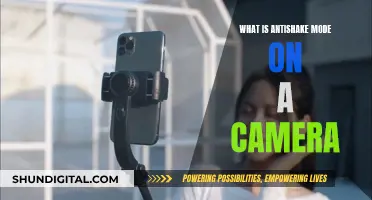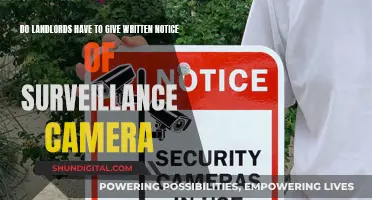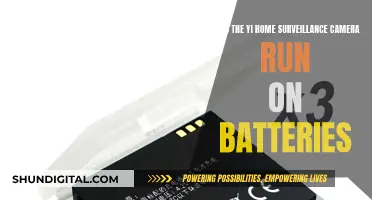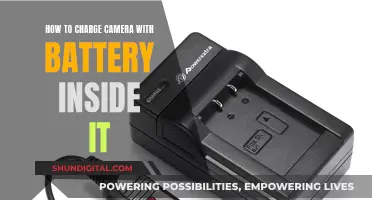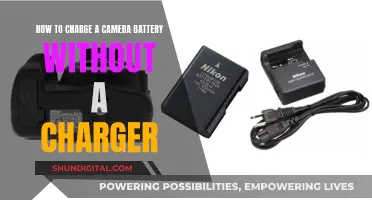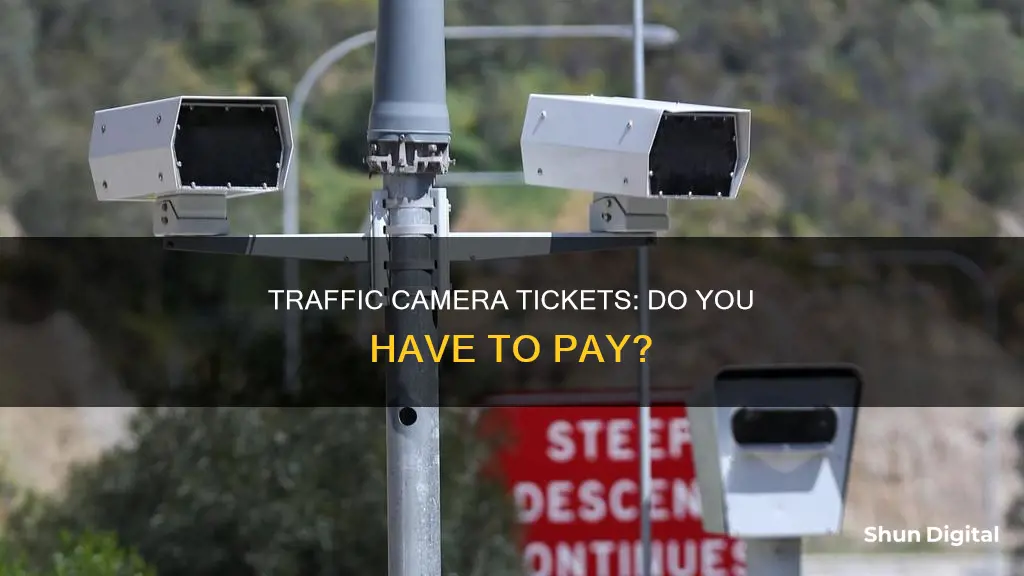
Whether or not you have to pay tickets from cameras depends on where you received the ticket and where you live. For example, in Washington, DC, speed cameras often catch drivers off guard, resulting in a hefty fine. While some people choose to pay these tickets, others claim that there are no repercussions for failing to do so, especially if the ticket is from a camera and not an in-person interaction with law enforcement. However, it's important to note that authorities can take action, such as preventing drivers from renewing their tags or even booting or towing vehicles. Additionally, tickets that go unpaid can double in price and be sent to collections, impacting an individual's credit score and financial standing.
| Characteristics | Values |
|---|---|
| Location | Washington, DC |
| Ticket Issuing Authorities | DC Department of Motor Vehicles, DC Department of Public Works, District Department of Transportation, Metropolitan Police Department, US Capitol Police, US Park Police |
| Ticket Types | Parking, photo enforcement, minor moving violation |
| Payment Methods | Credit card, check, money order, cash |
| Payment Locations | DC DMV Mobile App, Adjudication Services Center, DC DMV's Adjudication Services |
| Non-Payment Consequences | Default judgment, ticket sent to collections, unable to process future credit/debit card payments, vehicle booted or towed |
| Ticket Costs | Vary depending on speed and traffic law violated |
| Outstanding Tickets | Over 6 million tickets unpaid since 2000, totaling about $1.3 billion |
What You'll Learn

Some states don't enforce camera tickets from other states
The use of cameras to enforce traffic signals and speed limits is a highly controversial practice that has raised questions about public safety, privacy, and drivers' rights. While some states in the US have embraced this technology, others have not.
Each state has separate traffic laws, and while running a red light or stop sign is illegal everywhere, the use of red light cameras and speed detectors depends on state law. Some states ban automated traffic cameras altogether, while others limit how and where law enforcement can use them. Some allow local governments to set up individual camera programs, and some permit cameras statewide to enforce speed limits and traffic signals at intersections.
The consequences of traffic camera violations also vary by state. In some states, violations are treated as non-moving violations or parking tickets, with more lenient penalties such as lower fines and no points on the driver's record. In other states, violations result in the same penalties as traditional enforcement, including fines, points, and potential license penalties.
Notably, some states, such as Maryland and Washington, DC, do not have reciprocity agreements to enforce camera tickets across state lines. This means that if a driver from another state receives a camera-issued ticket in one of these states, they may not face repercussions for failing to pay the ticket. However, it's important to note that non-camera tickets are still enforceable across state lines.
To avoid any potential legal issues, it's always best to understand the local laws and regulations of the state you're driving in and to abide by the traffic rules.
Simplisafe Outdoor Camera: Long-Lasting Battery Life?
You may want to see also

Tickets can be contested
If you want to dispute a traffic camera ticket, you must plead not guilty. In some jurisdictions, you can do this by mail or online, or in person at an arraignment. If you plead not guilty, you cannot pay the fine listed. In some jurisdictions, paying the fine is considered an admission of guilt.
Contesting the Ticket
If you were not driving your car when it triggered the camera, you are not responsible for paying the ticket. You can submit an affidavit form to provide the name and address of the person who was driving. If you don't know who was driving, you can leave this section blank, and the law enforcement agency will be able to look it up.
If you were driving, try to reconstruct the scene and write down any details you remember. For example, you may have been making a legal right turn on red when the camera took the photo. If you were making a legal manoeuvre, you should be able to get the ticket dismissed.
Check the photos and videos of the incident. If the license plate isn't clearly visible, it may be difficult to confirm that the car is yours. If there's no clearly identifiable photo of you in the driver's seat, the prosecution can't prove you were driving, and you may be able to get off the hook.
Applicable Law
Research the applicable law for your area. Look for cases in your city or county about traffic cameras, and see if any appellate court decisions have ruled on the legality of traffic camera tickets. For example, some states have specific rules about where warning signs must be posted for traffic lights. If the warning signs were obscured or not present, you would have a defence.
Building Your Defence
Ensure warning signs are present and visible at the intersection. If there are no warning signs, or if they aren't clearly visible, you may have a defence. For example, the sign may have been obscured by a tree branch.
Request information on the maintenance of the system. California state law requires automatic enforcement systems to be calibrated and inspected regularly. If the red light camera had not been inspected properly or failed calibration at the time, you might be able to get the ticket dismissed.
Maya Camera Walk Mode: A Step-by-Step Guide
You may want to see also

Tickets can be paid by mail, phone, or in person
If you've received a ticket from a camera, you may be wondering if you have to pay it. The short answer is yes, these tickets are legal and enforceable. However, the way you pay them may differ depending on where you received the ticket.
In Washington, DC, you have several options for paying a ticket. You can pay using the DC DMV Mobile App, in person at the Adjudication Services Center, or by mail. If you decide to pay by mail, do not send cash. You must mail a check or money order, payable to the DC Treasurer, and write the ticket number in the memo line. If you do not have your ticket, write the ticketed vehicle's state and tag number on your check or money order. If you have more than one outstanding ticket and do not provide the ticket number, the payment will be applied to the oldest ticket first. Mail your payment to:
> Adjudication Services
> PO Box 2014
> Washington, DC 20013
You can also call (866) 893-5023 to pay tickets by phone.
In Colorado, you are required by law to pay traffic camera citations. As of summer 2023, if a citation is sent to the registered owner of a vehicle via first-class mail, it has been served, regardless of whether it was sent to an old address or if you claim you did not receive it. You are then subject to penalty and payment unless you can demonstrate that the citation was sent to you in error or that someone else was driving the car. You have 30 days from when the ticket is mailed to respond, and the fines will increase if you don't respond on time.
Instant Cameras: Still Relevant in the Digital Age?
You may want to see also

Tickets not paid within 30 days incur a penalty
If you have received a ticket from a camera, it is important to address it as soon as possible. While some people may face no repercussions for failing to pay a camera ticket, this is not always the case. In the case of Washington, DC, for example, if the DMV does not receive the ticket payment within 30 calendar days from the date the ticket was issued, a penalty equal to the fine will be assessed. This means that the amount you owe will double.
In California, most courts give violators up to 90 days to pay the fine or enter a plea. If you do not address the ticket within this grace period, the courts may add a "civil assessment" of around $300 to what you already owe. If you fail to pay the original fine and the assessment within an additional grace period, the court may send your case to collections.
Unpaid tickets can lead to further consequences beyond the initial fine. These may include license suspension, car registration issues, misdemeanor charges, and even an arrest warrant. Therefore, it is generally best to address a ticket as soon as possible, rather than waiting or ignoring it. If you are unable to pay the fine, there may be other options available to you, such as requesting a fine reduction, an extension, or a payment plan.
Charging Casio Exilim: A Step-by-Step Guide
You may want to see also

Repeat offenders may face towing or booting of their vehicles
The consequences of repeat offenders failing to pay their tickets can be severe. In California, for example, a vehicle can be impounded for a maximum of 30 days, after which it will be put up for auction. In the District of Columbia, repeat offenders who have had their vehicles booted or towed must pay their outstanding tickets to get the boot released. DC DMV will not accept a check as payment for the release of booted or towed vehicles. Instead, they must pay their ticket, boot, and tow fees in person at DC DMV's Adjudication Services. If the car has been towed, more information can be obtained by calling DC 311.
In some places, such as Texas, there are specific regulations in place regarding the towing and booting of vehicles. The Texas Towing and Booting Act, for instance, outlines the requirements for towing and booting consent and nonconsent tows, as well as the fees that may be charged. It also establishes the rights of vehicle owners and operators in these situations.
Discovering Your Adobe Camera Raw Version
You may want to see also
Frequently asked questions
Yes, you do have to pay tickets from cameras. However, there are no reciprocity agreements to enforce camera tickets across state borders.
You can pay for camera tickets by using the DC DMV Mobile App, in person at the Adjudication Services Center, or by mail.
If you have two or more unpaid camera tickets within 60 days, your vehicle could be booted or towed.


